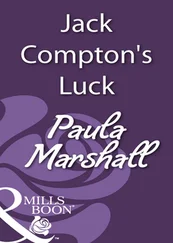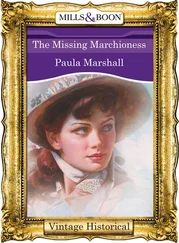Even as he wavered Bess said, still frank and as though she had read his mind, “Come, m’lord, let us set the board out for a new game and forget the old one.”
As though of its own will, and not his, Drew’s hand thrust itself forward, and grasped her smaller one, enclosing it in his where it fitted so warm and sweetly, that he felt his anger leaching out of him.
“Quits,” he said. “But I cannot promise what will happen on another day.”
“No,” shot back Bess. “But then, no more can I!”
“A strange truce,” smiled Drew, determined not to lose his self-control again, “when the two principals who have agreed it are still at war!”
“I am not at war,” announced Bess, picking up one of Dame Margery’s chicken legs and throwing a sideways glance at Drew as she did so. “On the contrary, I am enjoying my dinner, and am consequently at peace.”
Her sideways glance nearly undid Drew, it was so full of fun and mischief. He gave a little groan, and then leaned forward to take the half-eaten chicken leg from her hand and to begin to eat it himself, his eyes on hers. “What does Dame Margery baste her meat with that it has one effect on you, madam, and quite another on me?”
Bess smiled crookedly at him. “Why, you must to the kitchens, sir, and ask her. Though whether she will have an answer to satisfy you, is quite another thing.” Her smile, unknowing to her, was provocation itself.
A witch! A very witch! Had there been a potion in the goblet which the eager page boy had handed to him as he sat down? Only that could explain why she was keeping his hot blood on the boil. Used to meek women, determined to please him, to meet one who met him with defiance—and smiled so sweetly at him in the doing—was having the strongest effect on Drew. He could not wait for the evening, to have her in the Great Bed which was sure to be in the master bedroom above him.
His wife was suffering from the same fever. The beautiful boy who had despised her had turned into a man who stared at her with eager eyes even as he reproved her. He waved his stolen chicken leg at her before eating it slowly, his blue eyes on her face exactly as though it were she whom he was devouring.
Well, Bess knew a game worth two of that! She leaned forward to take his wine glass, lifted it to her lips and drank it as slowly and sensuously as she could, her eyes on his, so slowly that Drew could have sworn he could see the crimson liquid staining her skin as it slid down her throat.
And then, glass in hand, she took his bread and its attendant cheese from the pewter platter which lay between them, and ate that, too. “Tit for tat, my lord,” she murmured. “Your bread, cheese and wine for my leg. A fair exchange? Say Yea—or Nay.”
Aware that his cousin Charles, eyes wide, was avidly watching this little scene, Drew hooded his own eyes, clasped the wrist of the hand which held the wine glass, now half empty, and putting his lips where hers had been, drank from it until all the wine was gone.
“Neither Yea nor Nay, madam, but half and half, and somehere in between. You shall not best me!”
“Nay, sir, but I must try. I am not Griselda.”
Oh, Bess knew that it was unwise to tease him so. But yet she must, and knowing little of the game of love, as yet untouched by a man’s hands or lips, for Tib and the others had worshipped her from afar, how was it that she knew how to drive a man to distraction?
For Bess had no doubt that that was what she was doing, and even as she led him on with one ploy her busy mind, obeying her body’s urgings, was driving her on to another. Some time in the future he would force a reckoning on her, she knew that, and her body throbbed at the very thought. But he was answering her and she must attend.
“Now, that I already know,” Drew murmured, “that you are not Griselda. But are you Mother Eve who has already tempted—and taken—a man to lie on your breast, so knowing are your arts?”
“I have no arts, husband, other than those which Mother Eve gave me when I was born. And no man has known me either. I am as untouched as Eve was when the Lord God took her from Adam’s side.”
Could he believe her, so frank and free was she? He was not to know that all of the Atherington household was watching their lady with the deepest astonishment. They had never seen her behave like this before. But then, she had never sat beside her husband before. Drew, trying to maintain his self-control, shrugged. He would pursue the matter of Tib, and his wife’s familiarity with him, in private.
“Leave that, wife,” he told her curtly. “We have other, more pressing matters, to discuss. After this meal is over we must have an accounting, you, your Council and myself. I shall be most interested to hear an explanation from you all as to why I was never informed of Sir Braithwaite’s incapacity.”
One thing was plain to Bess. For all his easy surface charm—and there was no denying it—her husband was like a determined terrier with a rat in his jaws who would never let go, however much he was distracted, when he had set his mind on obtaining an answer to something which puzzled him.
“Oh, I think that you are mistook over that, sir. These mistakes will happen, will they not?” And now it was Charles Breton, sitting on her left, who received her charming sidelong glance.
“Oh, aye, indeed,” returned Charles, with a humorous duck of his head. “Most like the letter was lost, either on its way to us, or perhaps, after it was received.”
“Very helpful of you, Charles,” commented Drew, his voice dry. “I scarcely think, though, that my wife needs your assistance in explaining away the odd circumstances which appear to surround Atherington’s affairs.”
Thus rebuked, Charles smiled and changed the subject. It would not do to provoke Drew so hard that he lost his temper. Drew scarcely ever did so, but he had been a rare sight on the few occasions when he had lost control of himself. He wondered what it could be that was disturbing his cousin so strongly. Knowing of Atherington’s stalwart Protestantism, he asked a question to which he thought Drew could make no objection.
“Are there are many gentry families around Charnwood, Lady Exford? I had heard in London that there were—and that a number of them held to the old Catholic faith.”
Even as Bess began to reply, Drew swung around sharply to watch her as she spoke. Charles, he was sure, had no knowledge of the real reason why he was visiting Leicestershire, and was therefore, unknowingly, doing him a favour by raising the matter. It would save him from needing to ask such a question himself. He listened with interest as Bess agreed that there were a large number of gentry families in the county, some of whom were Catholic.
“But not so many, I believe,” she ended, “as in Derbyshire, where the Babingtons, my distant relatives, who are settled at Dethick, still hold to the old Faith. Most living hereabouts, though, are Protestant.”
“And are those around Atherington mainly Protestant, and therefore loyal, madam?” asked Drew, apparently idly.
“Assuredly.” Bess answered him eagerly; she wanted him to know that there were no traitors in Leicestershire. “We are all, Catholic and Protestant alike, loyal subjects of our Queen.”
Drew knew this to be true in the main. There had been many plots against the Queen designed to assassinate her, and replace her by her imprisoned cousin, Mary, the Catholic Queen of Scots, but few English Catholics had been involved in them. They had mostly been hatched abroad. This lay behind Walsingham’s uneasiness over the reports he had received, for they seemed to hint at a purely English conspiracy—a most disturbing development.
Bess had, quite deliberately, spoken to be heard by all, not simply her husband, and as a result all heads had nodded in agreement when she had finished speaking. Her Comptroller, Walter Hampden, sitting not far from them, raised his goblet of wine and said, “With your permission, my Lord of Exford, I beg that on this auspicious day of your arrival we may all rise to toast, not only our good Queen Elizabeth, but the Protestant Faith.”
Читать дальше












